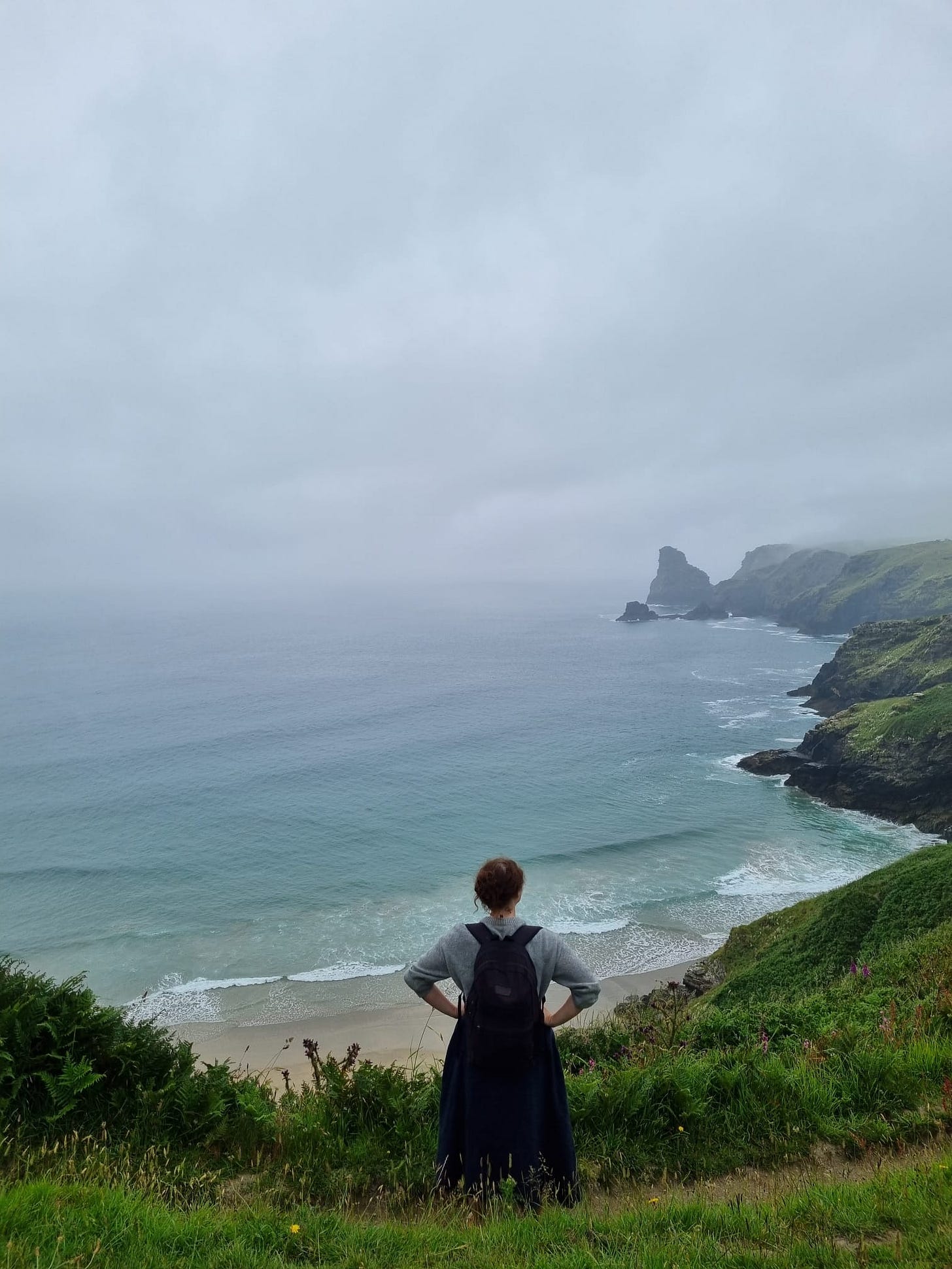Welcome to our collaboration feature here at Wild Quiet Folk!
Substack is an endless source of inspiration, a cacophony of unique voices that can lead a reader through the weird, wonderful and wild.
Here, I have collaborated with other creatives to bring you their meditations on place, story and wilderness - the heart of Wild Quiet Folk. This series is in an interview format, but offering creative prompts rather than questions - the freedom is with the contributor, to respond in whichever way they see fit, be that words, photos, drawings, anything that enlarges rather than restricts.
Our contributor this month is Jess Glaisher, whose moving dystopian novel Dear Lina is available on Audible - and no doubt is only the beginning of the work they will share with the world.
Thank you for being here, and I very much hope you enjoy the below:
The last walk, or outdoor adventure, you went on.
At the end of June, I made my way to the most Westerly point of England I have ever visited. Lands End was not my destination, though. Rather the rough rugged cliffs of a blue-green cove, and a theatre carved from the very rock of the Cornish coastline.
Performing at the Minack has been a dream of mine since my drama school days, when one of the other courses took a show each year, leaving me jealous of their outdoor adventures and wind-swept tech rehearsals. So when I saw an audition notice for The Pirate Queen back in the darkness of a London February, I knew I had to go for it.
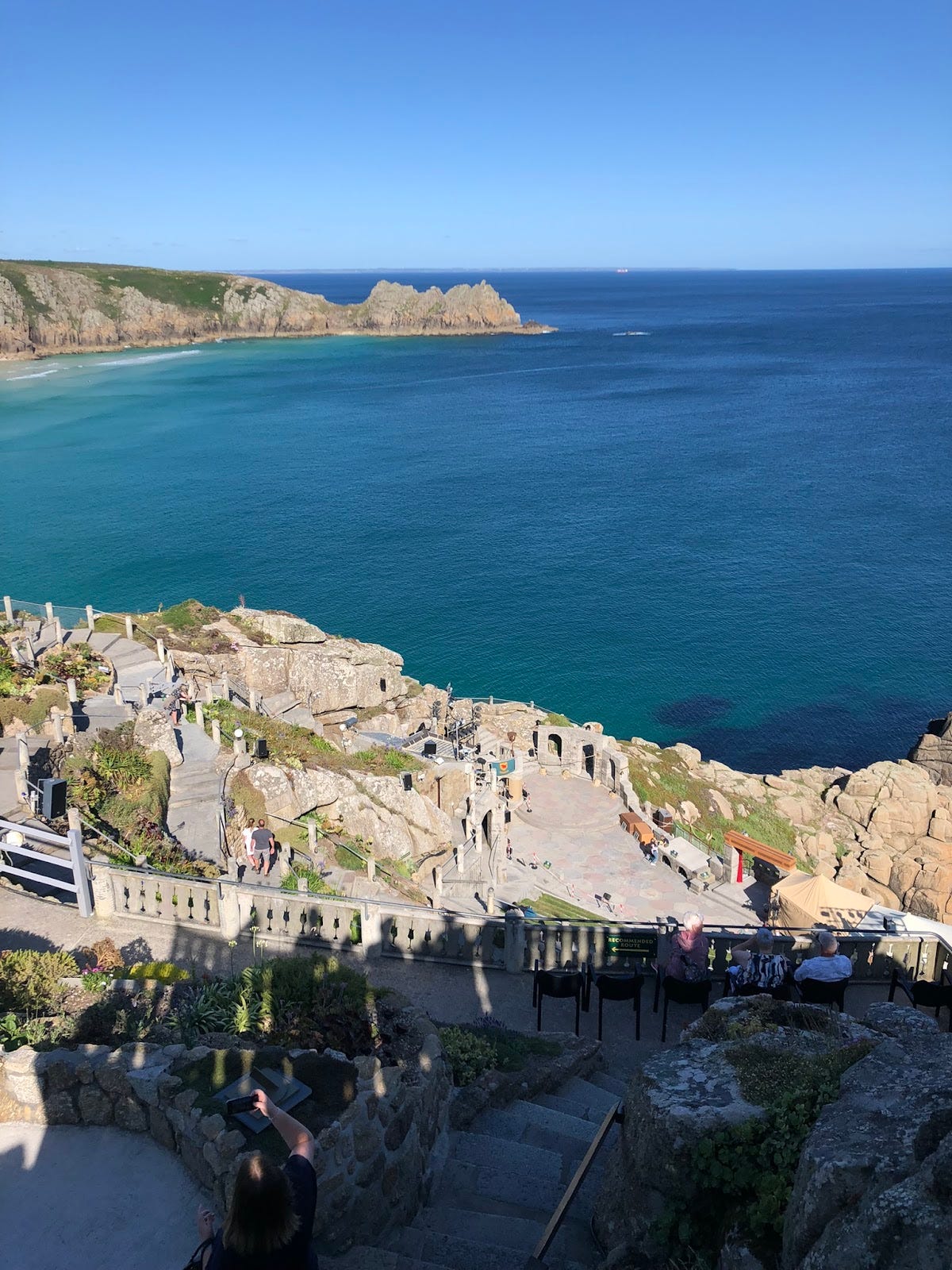
Each morning, after what would usually have been far too little sleep, I bounced from my bed in a small cottage at the top of the hill leading into the village of Porthcurno, which the Minack theatre draws thousands of people to each year. My walk was about half an hour to the theatre, and most days were sunny, Toy Story-like clouds gently scudding across an impossibly blue sky. I started at the end of a dirt track, among a handful of fancy second homes with carefully trimmed hedges and sunken trampolines. My highlighter-pink trainers crunched on the rocky path, a spring in my step; I had not felt so alive in years.
Unusually for a small country road, the first part of the walk was along a pavement, where grasses tickled my legs and, on the earlier mornings, dew sprinkled my hair and backpack.
As I passed the sign for the village, the path receded and I waved to the other cast and crew houses, looking out to see if anyone was joining me yet, and knowing that my excitement had probably led me to leave far too early. I didn’t care; my mind was quiet, my soul at peace.
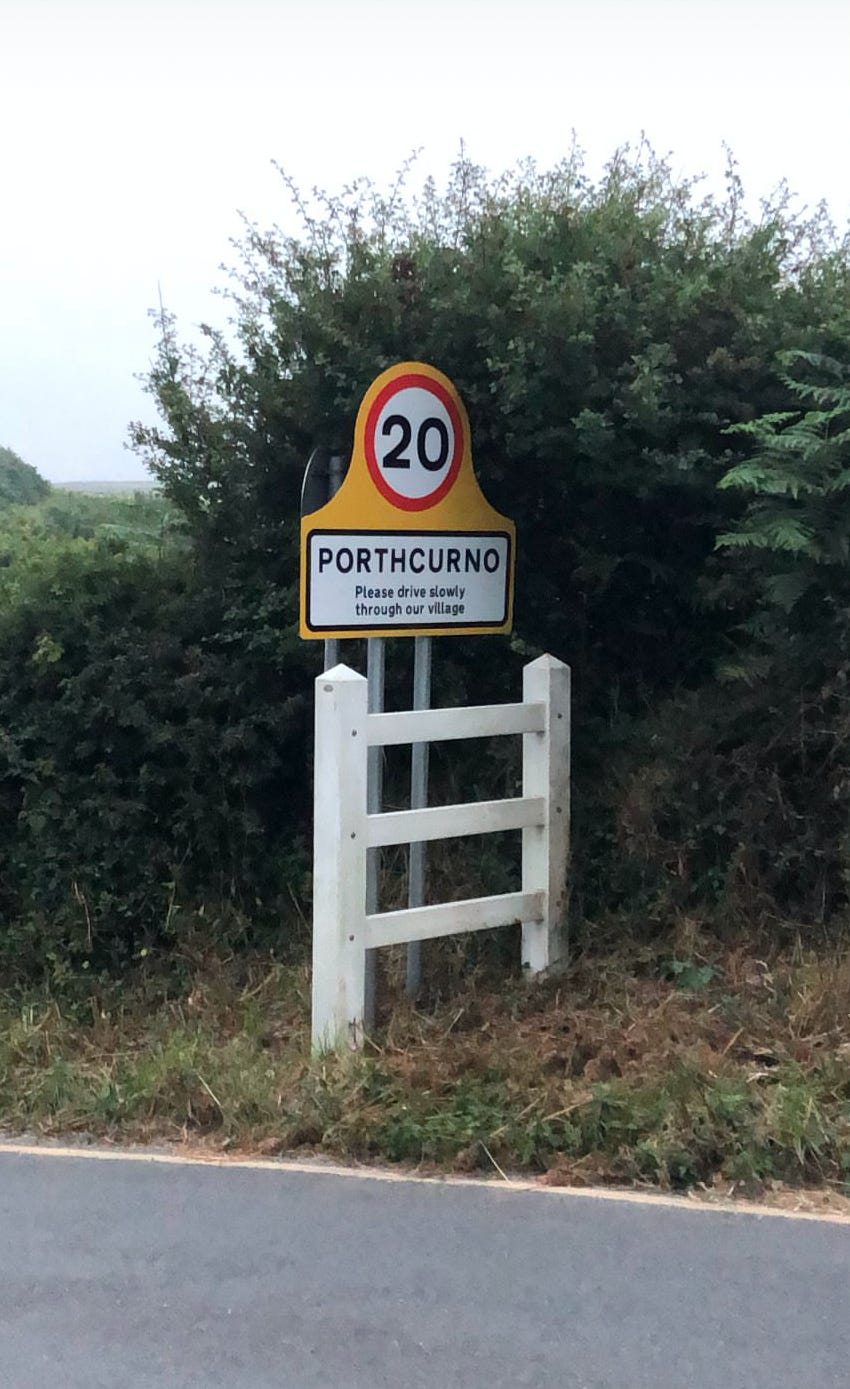
At the telegraph museum - where we had our cast party - I waved to the giant squid (Mogsy) made from bright red plastic tubing, and considered getting a drink from the beach café.
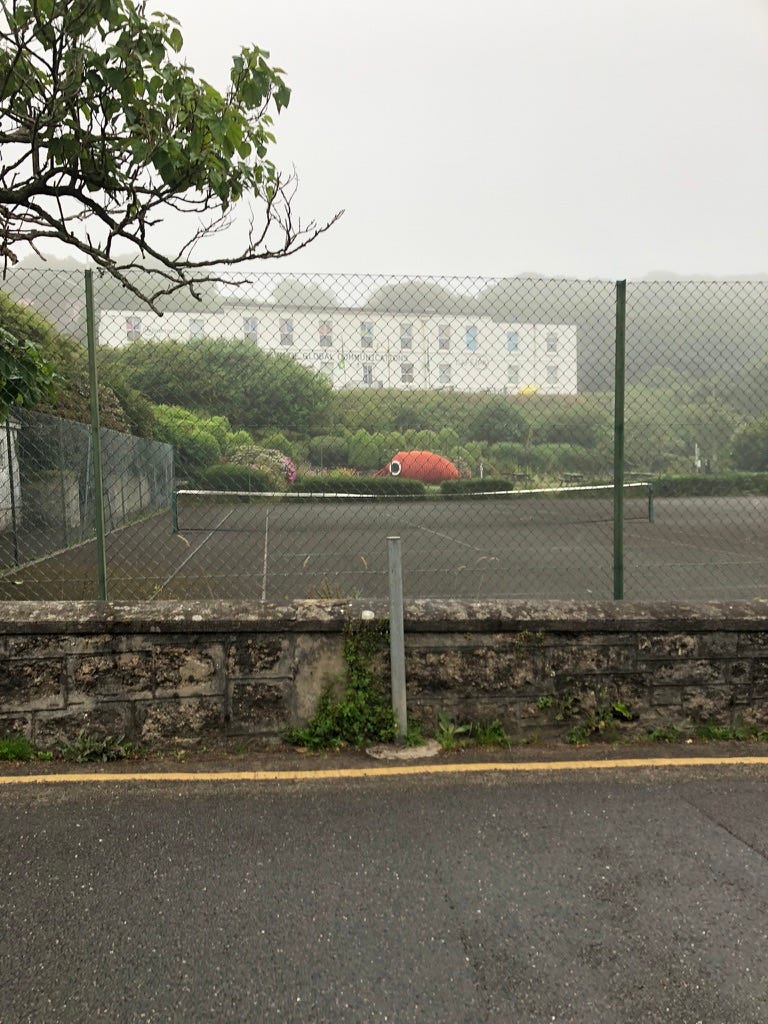
And then, at the village’s lowest altitude, I would look up towards the top of the hill, from which the most spectacular view could be had, and set off. It was steep, but by the end of a week, coupled with the hundreds of steps down into the theatre and the dressing rooms further below, my legs were stronger.
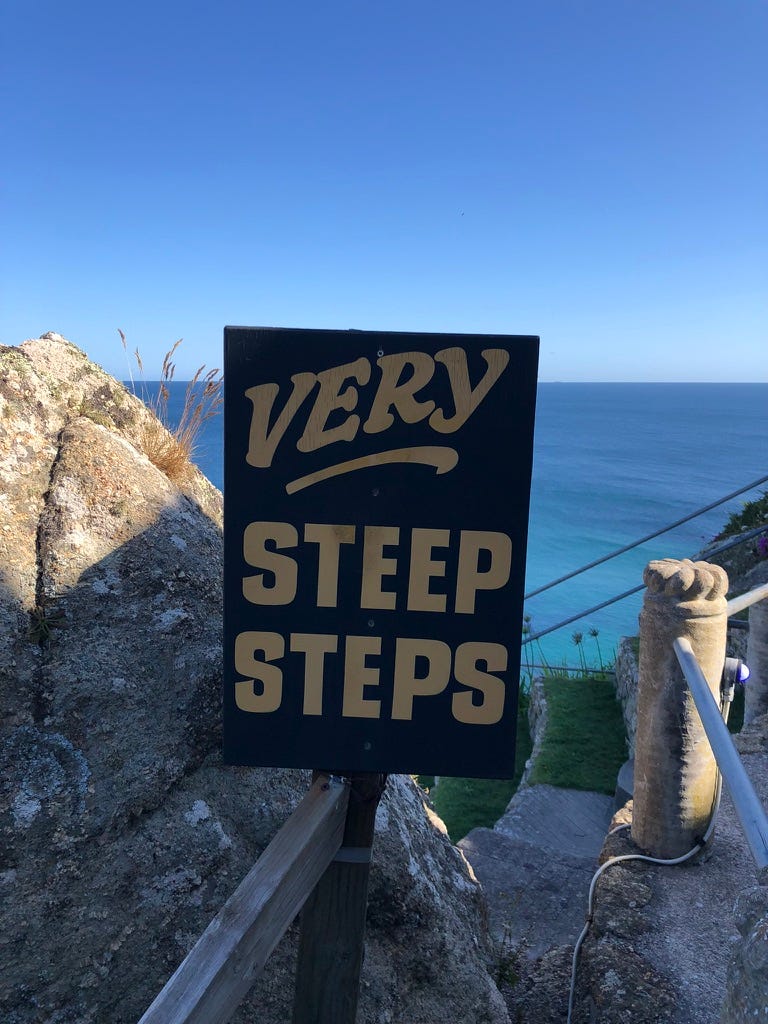
The final climb was rewarded with sight of the sign at the theatre’s entrance which declared each performance to be SOLD OUT, a sight we never grew tired of seeing.
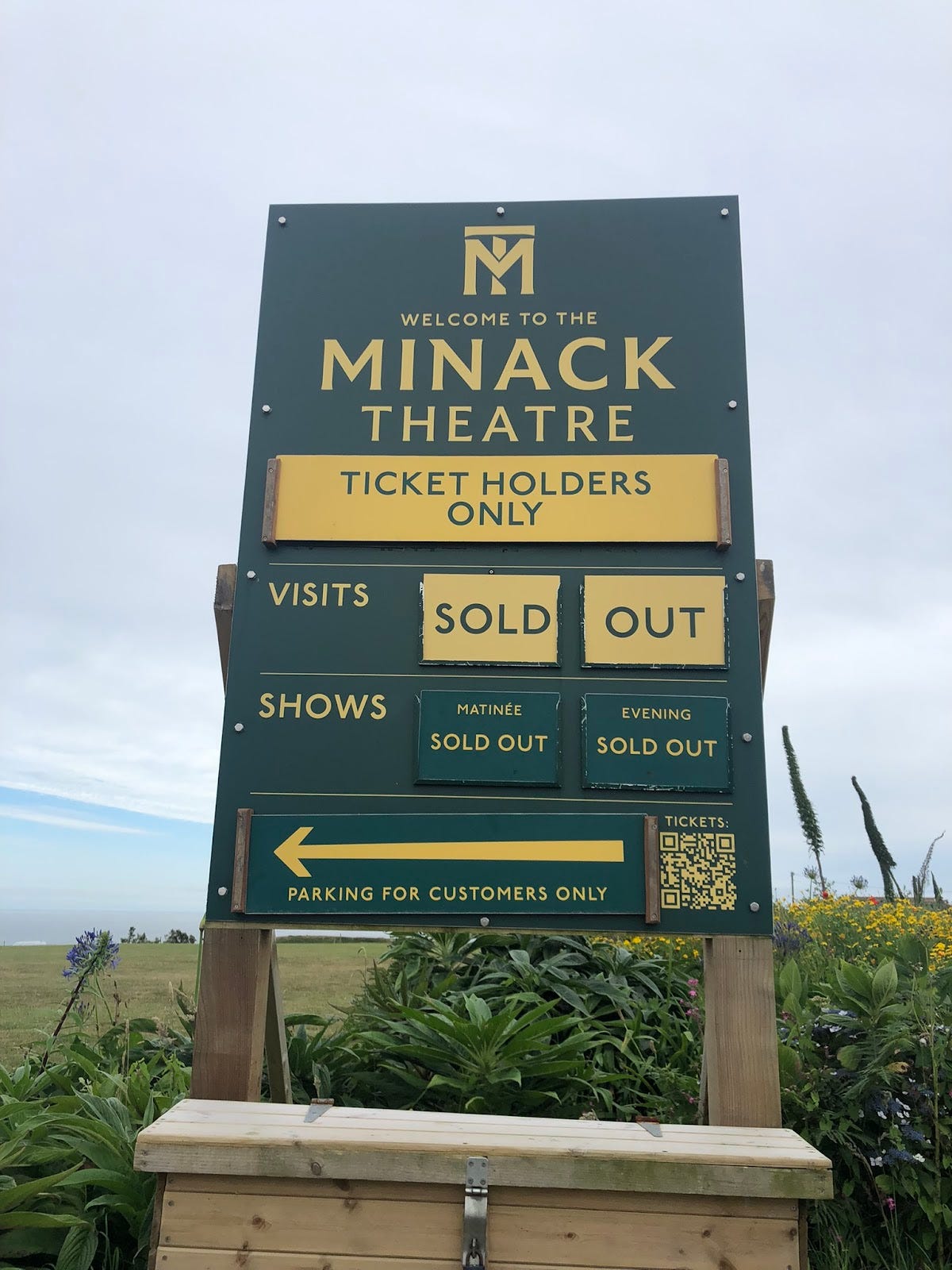
The flat of the top of the cliff took me - or by that point usually us, as I picked up friends along the way - past alien-like plants and bright sprays of poppies and nasturtiums. Through the carpark, through the gate and there: our home, for that fleeting week.
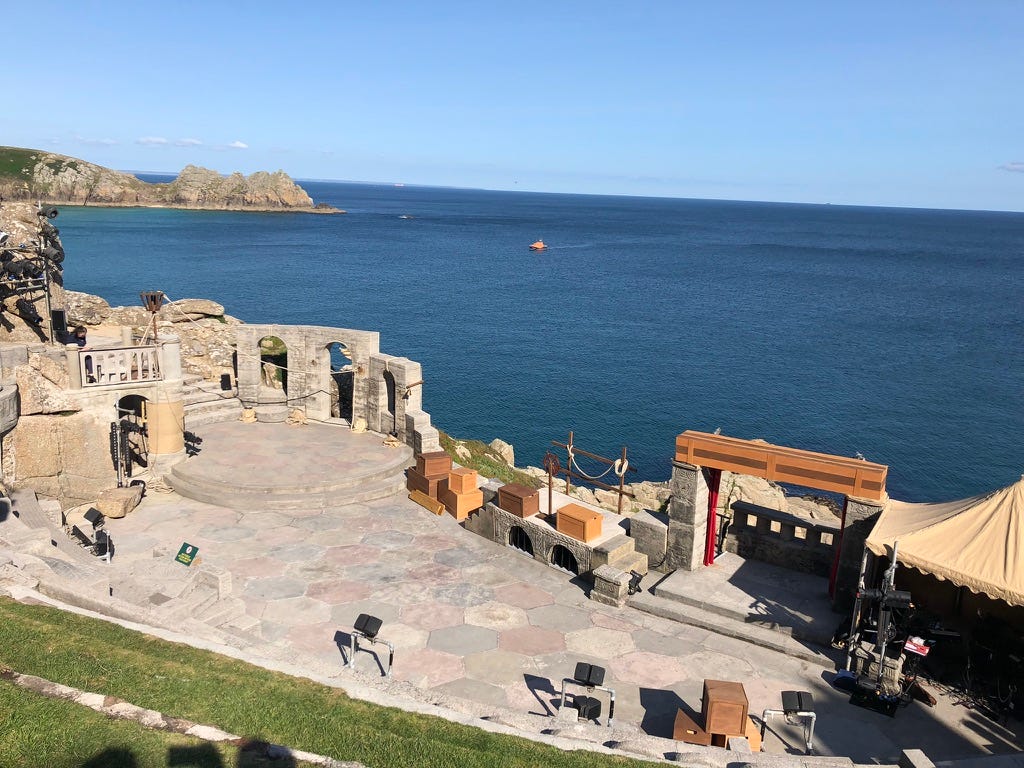
A celebration of season
Summer is my favourite breakfasting time of year. I spare no expense because when the summer fruits arrive in the shops my eyes bulge like a cartoon character and I have to have as many of them as I can fit in increasingly ridiculous-sized bowls. As a nod to it being breakfast, I usually add a few spoons of yoghurt, some cereal or oats, but that’s just to convince myself that I am not eating three people’s worth of fruit salad for breakfast. I will not be tamed by sense or cost. While these fruits are in season I will eat my fill, and several other people’s fill as well.

These bowls fuelled my hill and stair-filled walks up to the Minack, drinking in the sunlight as I made my way, first down the hill into the village, then back up to the theatre entrance, then back down the steps to the stage.
The things in your pockets
Usually, my pockets are filled: with receipts, packets from granola bars that I don’t want my cats to eat, whatever it is I’ve been using as a bookmark, and the usual trifecta: phone, wallet, keys.
But for that week I had no need of keys - the house we hired had a keysafe - and I barely needed my wallet since there were so few places to use it. My phone had very little signal, save for the wifi hotspots of the houses my friends were staying in, and the museum and café, so as I made my daily walk I would move in and out of the weak signal, freed from the shackle of social media and constant communication. Free to be in the moment, insofar as it is possible for an incredibly anxious person to do so.
The one addition was my Minack wristband, which made us all feel a little buzz of celebrity as we strolled past the queues of tourists, flashed it to the staff. I didn’t take it off for a week after we left until I saw my cast mates again and realised that, as usual, I was being sentimental. It’s still in my bag though.
A place that holds history, yours or others
The Minack has, since the 1930s, been home to countless productions. The seats closest to the stage - surprisingly comfy clam shells with slightly tipped-up seats - are adorned with the names of some of them, letters missing, occasional words indiscernible. We read them as we rehearsed our fights, our spacing. They stopped adding names at some point - perhaps they ran out of space - although more recent refurbishments have been subtitled with the year they happened, including, down stage right, the mysterious ‘Helen - 2024’.
It gives a sense that you’re sharing the space with others who have trod its stones, and have also tried to hold on to this fleeting moment of wonder.
A place that feels wild to you, a story you found in the land
Backstage at the Minack - such as it is - there is a walkway for performers to move from one side to the other. All that separates it from the cliff drop, from the splashing sea below, is a railing at chest height (at least on this 5’3” person). But beyond that barrier, about 50 metres further towards the breaking waves, set into an archway among the rocks, a space carved out for it: a door. Made up of bars, not a solid piece, so as to make it seem like you could see what lay on the other side.
All week we speculated about it - where did it lead? Who had last opened it? Why was it there?
Personally, I’m convinced that moving through it would have a similar effect to a fairy circle, but perhaps it would take you to another time in the theatre’s history, another show for which your costume would be wrong, your dances out of time.
And although it is undoubtedly man-made, there was a wildness about it, nestled in among the rocks: mysterious. And locked, lest you make the reckless decision to walk through it.
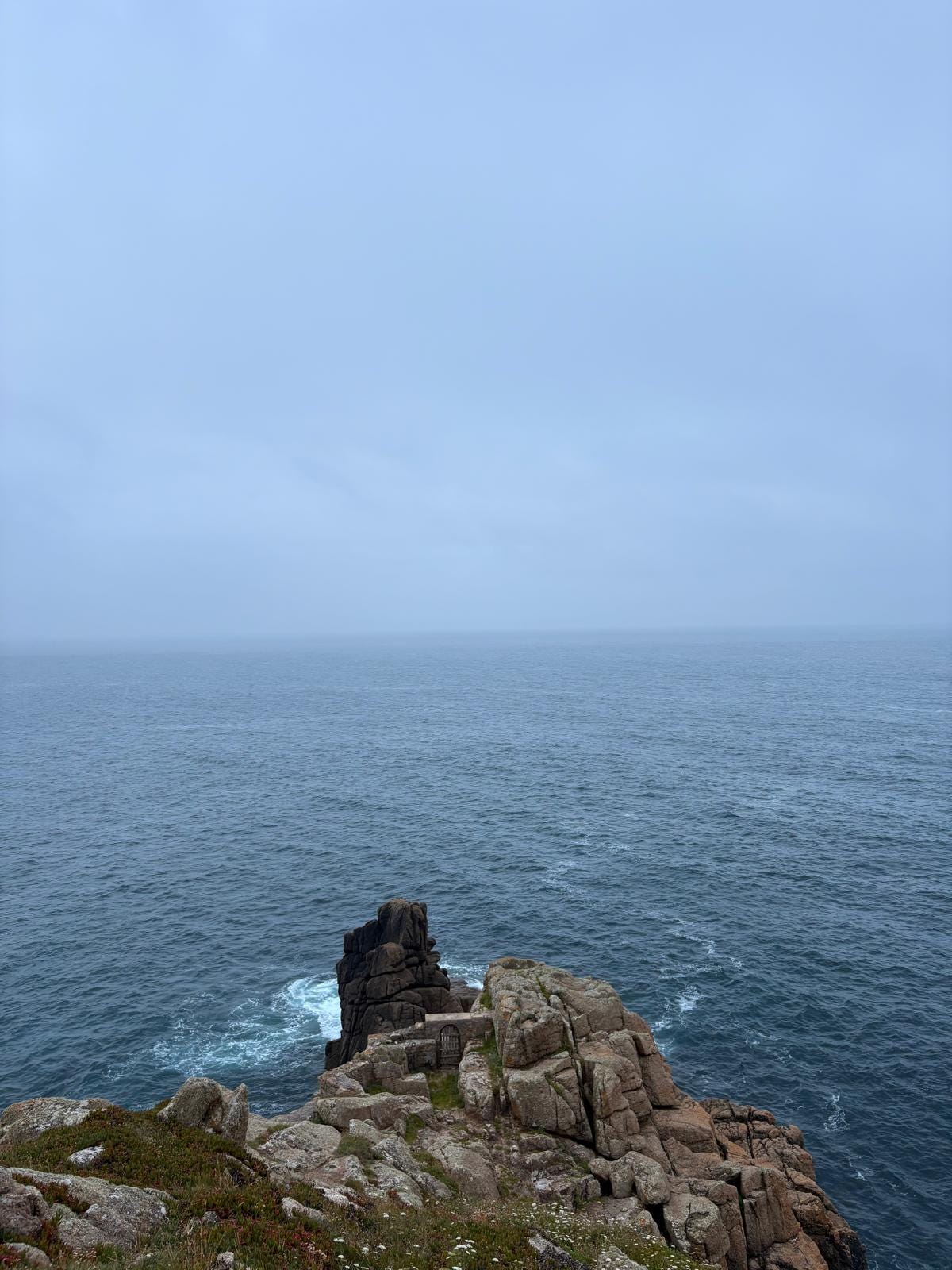
The last thing you read and loved
I just finished the audiobook of Sunburn by Chloe Michelle Howarth, which I started calling ‘bisexual panic in 90s Ireland’ when people asked me to describe it. The narration was beautiful, and it was set around the time that I lived in Ireland (where I was born). It reminded me so clearly of teenage feelings of love blossoming in the summer air, and the distance between the end of school and the start of real life, and wondering what comes after it.
A moment of care
Since I’ve been back from Cornwall, I’ve had more energy than I am usually blessed with. Some of this is good, and some of it is sadly indicative of an anxious period, the likes of which I have experienced annoyingly frequently during my life. To combat it, I have this week finally got over my fear of cycling in London (after nearly 20 years here) and have made trips to my beloved West Reservoir on my bike, doing my usual two laps of the sun-warmed water, and grabbing something delicious for dinner on my way back, my lightning-bolt decorated helmet shining in the evening sun.
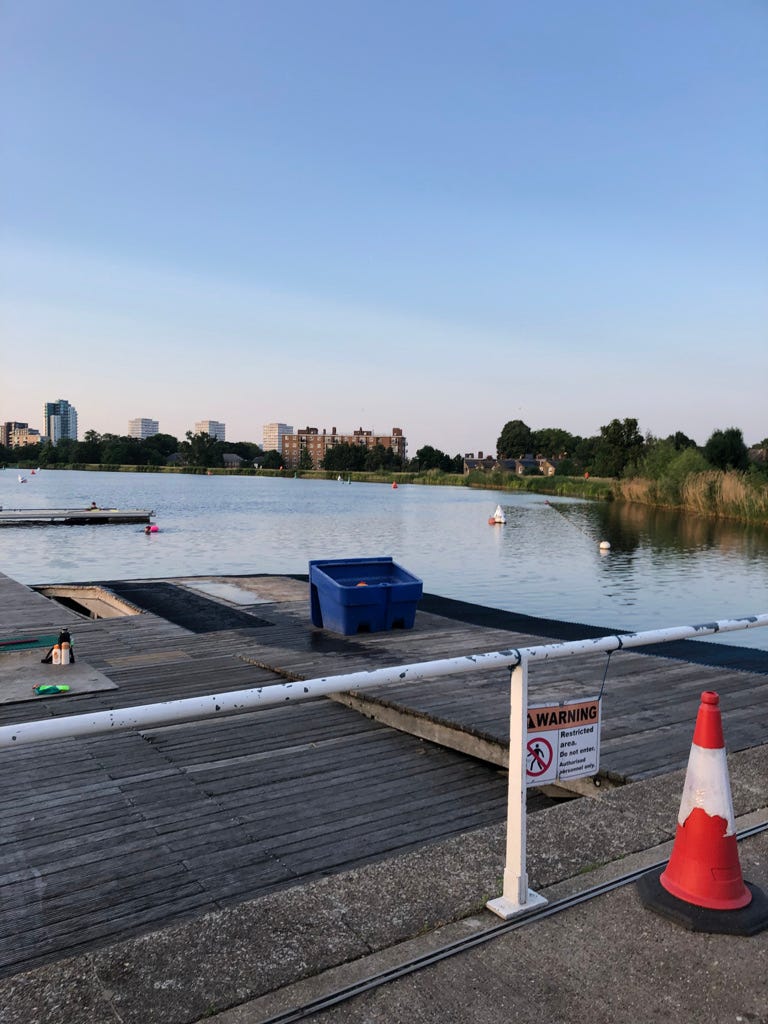
A small thing you learnt recently
I’ve been thinking about how when one creative project ends I can feel so bereft, as if to believe there will never be another one. But I’m writing this sitting in the British Library editing my second novel. There will always be more projects, there will always be more to create.
Jess is a queer, disabled writer, performer, and drag king. Their debut novel Dear Lina was published in 2020 by Audible and has been called 'A queer dystopia for our troubled times'. Their short story Hairless won second place in the Dinesh Allirajah Prize 2024, and their play Dyke Drama was long-listed for BOLD Playwrights 2024. Their work has appeared in numerous print anthologies and online. They are currently working on a horror short story collection and a second novel.
You can sign up to their newsletter ‘Between the Lines’ and find them @jessglaisher_writer and @westendwestleydrag on instagram. They can often be found procrastinating with cake.





